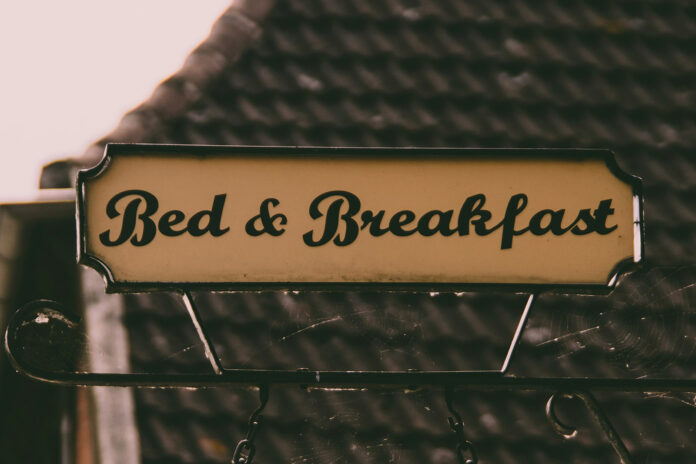
Running a bed and breakfast in Ireland isn’t just about having spare rooms and knowing how to cook a fry-up. It’s an art form, really – one that blends Irish hospitality with savvy business sense. Whether you’re just starting out or you’ve been welcoming guests for years, there’s always something new to learn about making your B&B thrive.
You know that feeling when everything just clicks? When guests leave glowing reviews, your bookings are steady, and you actually enjoy what you’re doing? That’s not luck. It’s the result of understanding the nuances of this unique business.
Understanding Irish B&B Regulations and Requirements
Let’s be honest – the regulatory side of running a B&B isn’t exactly thrilling. But here’s the thing: getting it right from the start saves you endless headaches down the road. Irish hospitality regulations have shifted quite a bit over the past few years, and keeping up can feel like chasing a moving target.
First things first: Fáilte Ireland registration. It’s not just a nice-to-have anymore. This stamp of approval tells potential guests you’re serious about standards. The process might seem daunting, but it’s essentially about proving you meet specific quality criteria. Think of it as your entry ticket to the professional B&B world.
Fire safety certificates aren’t optional either. You’ll need proper fire doors, emergency lighting, and clear escape routes. The local fire officer will become surprisingly familiar to you. Planning permissions can be trickier – especially if you’re converting a family home. Some councils are stricter than others, and what flies in Cork might not work in Clare.
Then there’s food safety. HACCP (Hazard Analysis and Critical Control Points) sounds intimidating, but it’s basically common sense with paperwork. You’re documenting what you already do – keeping your fridge at the right temperature, storing raw and cooked foods separately, maintaining cleaning schedules. The Food Safety Authority of Ireland has brilliant resources that break it down into manageable chunks.
Insurance is where many new B&B owners get caught out. Public liability is obvious, but what about coverage for cancelled bookings? Or damage to guests’ property? A good broker who understands hospitality can save you thousands in the long run.
The tax situation depends on your scale. Once you hit €42,500 in annual turnover, you’re into VAT territory. But even below that threshold, you need meticulous records. Cash payments are grand, but everything needs documenting. The Revenue Commissioners have become rather keen on the hospitality sector lately.
And then there’s GDPR. You’re collecting names, addresses, credit card details – all personal data that needs protecting. It’s not just about having a privacy policy on your website. How do you store booking information? Who has access? How long do you keep it? These questions matter now more than ever.
Here’s what many people miss: compliance isn’t just about avoiding fines. It’s about sleeping soundly knowing you’ve done things properly. When you’re fully compliant, you can focus on what really matters – creating brilliant experiences for your guests.
Creating Exceptional Guest Experiences
Modern travellers don’t choose a B&B for a generic experience. They could get that at any chain hotel. No, they’re after something more personal, more authentic. They want to feel like they’re staying with friends who happen to have really comfortable beds and know how to cook a proper breakfast.
First impressions start long before arrival. Your website, your booking process, even your email confirmations – they’re all setting expectations. A clunky booking system or a website that looks like it hasn’t been updated since 2010? You’ve already lost them.
But let’s talk about what happens when they actually arrive. That moment when they walk through your door sets the tone for everything. A genuine welcome – not a script, but actual warmth – makes all the difference. You don’t need to be their best friend, but showing real interest in their journey or plans creates connection.
The bedroom is where comfort really counts. Clean is the baseline, but comfortable is what gets you five-star reviews. Quality bedding makes such a difference here. When you’re investing in contract mattresses, you want something that’ll stand up to different body types and sleeping preferences night after night. Commercial suppliers like King Koil contract mattresses understand this – they design specifically for hospitality use, balancing durability with that cloud-like comfort guests remember.
Little touches matter more than grand gestures. A proper reading light. Enough sockets for all their devices. Blackout curtains that actually black out. Fresh milk in the fridge for their tea. These aren’t expensive additions, but they show thoughtfulness.
Breakfast remains your signature moment. Yes, the Full Irish is expected, but it’s how you execute it that counts. Local sausages from the butcher down the road. Free-range eggs from someone you know by name. Homemade brown bread still warm from the oven. And please, for the love of all that’s holy, decent coffee. The days of instant being acceptable are long gone.
Dietary requirements aren’t annoyances – they’re opportunities. The guest who mentions they’re coeliac? When you produce glorious gluten-free pancakes without them having to ask, you’ve just made a friend for life. Stock your kitchen for flexibility. Almond milk, gluten-free bread, vegetarian sausages – these aren’t faddy extras anymore.
Gathering feedback shouldn’t feel like pulling teeth. A simple “How was everything?” at checkout often yields gold. The guest who mentions the shower pressure was a bit weak? That’s invaluable information. Act on it, and mention you’ve done so in your response to their online review.
Speaking of reviews, they’re your lifeblood now. TripAdvisor and Google Reviews influence bookings more than any advertisement. Respond to every single one – good and bad. A thoughtful response to criticism shows potential guests you care and you’re constantly improving.
Strategic Marketing for Your Irish B&B
Irish B&Bs occupy a special place in the global tourism market. We’re not competing with Bali beach resorts or Swiss ski chalets. We’re selling something uniquely ours – genuine Irish hospitality in authentic settings. But how do you communicate that effectively?
Your unique selling proposition needs clarity. Are you the B&B for walkers exploring the Wild Atlantic Way? The romantic hideaway for couples? The family-friendly base for exploring historical sites? You can’t be everything to everyone, and trying to appeal to all markets usually means connecting with none.
Digital presence is non-negotiable now. Your website needs to load fast, look professional, and work perfectly on phones. Over 70% of travellers book accommodation on mobile devices. If they’re pinching and zooming to read your text, you’ve already lost them. High-quality photos are worth the investment – terrible pictures of beautiful rooms are worse than no pictures at all.
Search engine optimisation sounds technical, but the basics aren’t complicated. Use natural language that matches how people search. “B&B near Cliffs of Moher” is more valuable than clever wordplay. Google Business Profile is free and powerful – claim your listing, keep it updated, respond to reviews there too.
The OTA question divides B&B owners like nothing else. Booking.com, Airbnb, and their ilk bring bookings, but at 15-20% commission. They’re brilliant for filling gaps and reaching international markets. But becoming entirely dependent on them? That’s dangerous. Use them strategically – perhaps for last-minute availability or quiet seasons – while building your direct booking muscle.
Direct bookings save money and build relationships. Email marketing to past guests works surprisingly well. A simple “We’re thinking of you” message before their anniversary (you noted it when they mentioned they were celebrating) can prompt repeat bookings. Social media needs consistency more than perfection. Behind-the-scenes glimpses, local area highlights, breakfast photos that make people hungry – these work better than polished marketing speak.
Storytelling sells beds. The history of your building, your own journey to B&B ownership, profiles of local suppliers – these create emotional connections. People book experiences, not just rooms.
Measuring what works prevents wasting money on what doesn’t. Google Analytics (also free) shows where your bookings actually come from. That expensive newspaper ad? Maybe it’s not worth renewing if it’s sending three visitors a month.
Building Local Partnerships and Networks
Isolation kills B&Bs faster than bad reviews. You might think you’re in competition with every other accommodation provider in town, but that mindset limits everyone. The rising tide lifts all boats, as they say.
Start with obvious partnerships. Local restaurants appreciate B&B guests who arrive pre-recommended. Develop relationships with two or three places covering different styles and budgets. When you personally suggest somewhere, backing it with “Tell them I sent you,” it carries weight. They’ll likely reciprocate.
Activity providers are gold dust. The kayaking company, the walking guide, the craft workshop – these partnerships enhance your guests’ experiences while supporting local businesses. Create a proper local directory, not just a pile of leaflets in the hallway. Personal recommendations based on guests’ interests show attention.
Transport can elevate your service significantly. Not everyone arrives with a car, and taxis aren’t always reliable in rural areas. Building relationships with dependable transport providers helps enormously. For special occasions – wedding parties, corporate groups, airport transfers – having contacts for luxury minibus hire adds a professional touch. Companies like Keogh Luxury Coach Tours of Ireland specialise in this market, understanding that reliability matters as much as comfort for group bookings.
Other B&Bs aren’t enemies. When you’re full, recommending somewhere you trust builds goodwill. They’ll return the favour. Some areas create informal networks, even sharing suppliers or covering each other’s emergencies. That Saturday morning when your cooker breaks down and Mary from down the road lends you her spare? Priceless.
Local tourism boards and business networks might seem bureaucratic, but they’re worth joining. Ireland’s Ancient East or Wild Atlantic Way initiatives bring marketing muscle no single B&B could afford. Chamber of Commerce membership connects you with non-tourism businesses too. That accountant or solicitor might not seem relevant until they’re recommending you to visiting colleagues.
Festival and event participation pays dividends. During the local arts festival or agricultural show, you’re not just accommodation – you’re part of the experience. Special packages or themed weekends around local events fill rooms while supporting community initiatives.
Supplier relationships matter beyond the transactional. That butcher who saves you the best sausages, the bakery that delivers fresh bread at 7am, the florist who knows exactly what you need – these partnerships improve your product while keeping money in the local economy. Guests increasingly value knowing where their breakfast came from.
Financial Management and Pricing Strategies
Right, let’s talk money. Because at the end of the day (sorry, I know that phrase is overused), passion for hospitality doesn’t pay the electricity bill. Too many B&B owners treat their business like a hobby with benefits. That’s a recipe for burnout and bankruptcy.
Separating personal and business finances isn’t just good practice – it’s essential for sanity. That joint account where everything mingles? It makes tax returns nightmarish and profit tracking impossible. Get a business account. Use it exclusively for B&B income and expenses. Your accountant will thank you.
Pricing strategy requires delicate balance. You’re not competing with the €30-a-night hostel, but you’re probably not chasing the luxury hotel market either. Research what similar properties charge, but don’t just copy them. What’s your actual cost per room night? Factor in everything – laundry, breakfast ingredients, your time, wear and tear. Many B&Bs underprice because they don’t calculate true costs.
Seasonal pricing makes sense, but be strategic. Everyone raises rates during peak season. What about shoulder seasons? A walking package in autumn or a romantic winter weekend might command premium prices when others are dropping rates. Special events – concerts at nearby venues, local festivals, sporting fixtures – justify temporary increases.
The psychology of pricing fascinates me. €99 feels significantly cheaper than €100, even though it’s a euro difference. Including breakfast in your rate rather than charging separately often works better psychologically. Guests hate surprise charges more than higher upfront prices.
Revenue management isn’t just for big hotels. Simple tactics work: minimum stay requirements for weekends, early bird discounts for advance bookings, last-minute deals for empty rooms. But be careful with heavy discounting – it can cheapen your brand and attract problematic guests.
Cash flow crushes more small businesses than lack of profit. January and February might be dead quiet. Can you survive two months with minimal income? Building reserves during busy periods isn’t pessimistic – it’s practical. That tax bill in October won’t wait because you had a quiet September.
Cost control needn’t mean scrimping. Buying breakfast supplies in bulk makes sense. Energy-efficient appliances pay for themselves. But cutting quality to save pennies? False economy. Guests notice when you switch to cheap tea bags or thin toilet paper.
Additional revenue streams deserve consideration. Afternoon tea for non-residents, small corporate meetings, intimate wedding ceremonies – these can boost income without requiring more bedrooms. But only if they don’t compromise your core B&B business. Tired, grumpy owners because they’re doing too much? That shows.
Professional financial advice isn’t admitting defeat. A good accountant saves more than they cost. They’ll spot tax allowances you’re missing, suggest optimal business structures, and keep you compliant with revenue requirements.
Regular financial reviews – monthly, not annually – keep you informed. Which months are consistently weak? Which marketing channels bring profitable bookings versus discounted ones? Knowledge is power, even when the numbers aren’t what you’d hoped.
Maintaining Your Property to Premium Standards
Your property is everything. It’s your business asset, your marketing tool, and your home. Letting standards slip is like watching your investment crumble in slow motion. But maintenance doesn’t mean constant major renovations – it’s about consistency and attention.
Prevention beats reaction every time. That tiny leak under the bathroom sink? Fix it now before it becomes water damage requiring new flooring. Create maintenance schedules that make sense: gutters cleaned every autumn, boiler serviced annually, carpets deep cleaned between seasons. Write it down. Calendar reminders work wonders for avoiding “I meant to do that” situations.
Older properties bring character and challenges in equal measure. Preserving period features while meeting modern expectations requires thought. Original floorboards are gorgeous, but they need proper soundproofing between rooms. Sash windows look authentic but might need secondary glazing for warmth. It’s about respecting history while ensuring comfort.
Energy efficiency isn’t just trendy – it’s essential. Heating costs can cripple profitability, especially in older buildings. Start with the basics: proper insulation, draught-proofing, efficient boilers. LED bulbs throughout might seem minor, but the savings add up. Solar panels or heat pumps? Run the numbers carefully – grants might make them viable.
Deep cleaning schedules matter as much as daily housekeeping. Curtains absorb smells. Mattresses need turning and occasional professional cleaning. Carpet edges accumulate dust. Windows get grimy. Set aside quiet periods for proper deep cleans – the kind where you move furniture and clean behind it.
Décor refresh doesn’t mean following every trend. Classic, quality choices age better than fashionable ones. But rooms do need updating. Paintwork every few years, new bedding when it starts looking tired, carpet replacement before it becomes embarrassing. Budget for this. It’s not an emergency expense if you plan for it.
High-traffic areas suffer most. Hallway carpets, bathroom fixtures, kitchen appliances – these need more frequent attention. Quality initial choices save money long-term. That cheaper carpet that needs replacing after two years? More expensive than buying quality initially.
Gardens and exteriors create first impressions. Overgrown hedges and peeling paint suggest neglect inside too. But you don’t need Powerscourt-level gardens. Well-maintained basics – cut grass, weeded beds, clean windows – show pride in your property.
Technology expectations keep rising. Reliable WiFi isn’t optional anymore – it’s as expected as hot water. Guests need speeds that handle video streaming, not just email checking. USB sockets in bedrooms, smart TVs that actually work, perhaps keyless entry systems – these aren’t gimmicks anymore.
The maintenance mindset matters most. It’s not about perfection but consistent standards. Regular property walk-throughs with fresh eyes help. What would a first-time guest notice? That slightly musty smell you’ve grown used to? The dated bathroom tiles you’ve stopped seeing?
Quality maintenance shows respect – for your property, your business, and your guests. It’s not glamorous work, but it’s what separates professional operations from amateur efforts. And honestly? There’s satisfaction in keeping standards high when others let theirs slide.
Takeaway
Running a successful Irish B&B demands more than spare rooms and a friendly smile. It requires business acumen, attention to detail, and genuine commitment to hospitality. But when you get the balance right – when regulations are handled, guests are delighted, marketing works, partnerships flourish, finances flow, and your property shines – it’s one of the most rewarding businesses imaginable.
You’re not just providing beds. You’re creating memories, supporting local communities, and sharing the best of Irish hospitality with the world. That’s worth doing properly, don’t you think?











